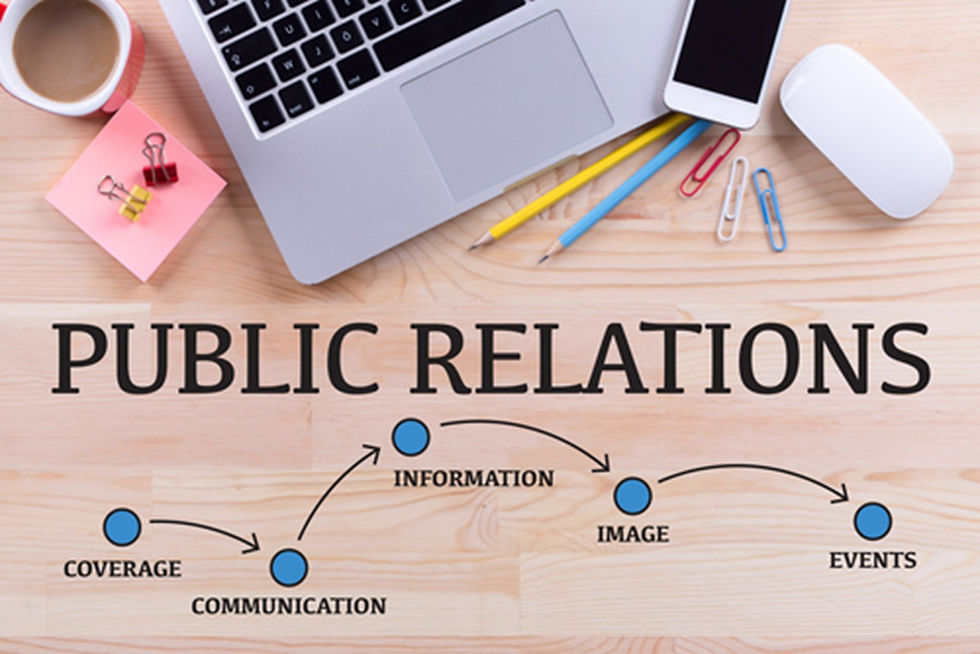From Zero to PR Hero: How to Get Started in Public Relations
- Dammi Afo
- May 15, 2023
- 4 min read
Updated: May 23, 2023
Public Relations is an exciting and dynamic field that is constantly evolving. Whether it's managing a crisis, building a brand, or developing a successful influencer marketing campaign, the world of PR is an essential part of modern business. However, it can be difficult to know where to start for newcomers. That's why DPR-MGMT, a leading PR agency in the influencer marketing and public relations space, is here to help.
This post will guide you through the basics of public relations and provide you with practical tips and tools to help you go from zero to PR Hero.
What Does a Public Relations Specialist Do?

A Public Relations Specialist, in simple terms, is responsible for promoting and maintaining the image of a person, company, or organization.
A PR specialist develops strategies and campaigns to build a positive image of their client and establish good relationships with the public. They craft press releases, write speeches, initiate media coverage, and interface with journalists and media professionals to generate exposure for their clients. They also manage social media accounts, create content, monitor media coverage, and analyze data to measure the success of a PR campaign.
A PR specialist must have excellent communication skills, critical thinking, creativity, and a deep understanding of their client's industry. They play an important role in crisis management by mitigating negative publicity and responding to the public during a crisis situation.
How To Become A Public Relations Specialist

1. Gain Relevant Education And Experience
To become a public relations specialist, you will need to gain relevant education and experience. A bachelor's degree in communication, public relations, or a related field is typically required. Additionally, it's critical to acquire practical work experience through internships, entry-level jobs, or volunteer work. You will gain information and practical skills that are necessary for success as a result of doing this.
2. Develop Relevant Skills
To become a successful public relations specialist, there are certain skills that are essential to possess. Developing relevant skills in areas such as strategic thinking, communication, relationship building, writing, and research is crucial.
Effective communication skills are key when it comes to crafting messages on behalf of clients that are impactful and resonate with target audiences. Additionally, the ability to build and maintain relationships with clients, colleagues, and the media is important to establish a positive reputation and ensure successful outcomes.
Writing skills also come into play, as crafting press releases, speeches, or other written materials requires clarity and a strong command of language. Strategic thinking and research skills are essential for developing effective PR campaigns based on data and insights.
3. Network and Build Relationships
Networking and relationship-building are essential in the PR industry. To network with other industry experts, go to conferences, seminars, and industry events. Join relevant groups on social media and engage with other professionals online. Building relationships with journalists, bloggers, and other influencers can also be beneficial, as they can help spread your message and increase your organization's visibility.
4. Learn What Kind Of Pr You Like (Advertising, Education, Government, Politics, Business)
PR is a diverse field with many different sub-specialties. Understanding what kind of PR you like can help you focus your job search and develop your skills in a specific area.
Do you prefer working with celebrities and influencers? Then celebrity PR might be the right fit for you. If you enjoy working with government agencies, then government PR might be a better fit.
Consider your interests and passions, and explore different types of PR to find the best fit for you.
5. Try Joining a Professional Association
The professional association offers great support, resources, and networking opportunities that can broaden your understanding of the industry and increase your employability in both the private and public sectors. As a member, you may have access to the association's training programs, continuing education opportunities, authoritative publications, and news on industry trends.
Networking events, online forums, and mentorship programs also add up to the benefits of professional association membership, which can give you exposure to different sides of PR and enable you to diversify your expertise.
6. Consider Getting a Certification
Acquiring a certification in your field might help you stand out to prospective employers. Accreditation in Public Relations (APR) and a Certificate in Principles of Public Relations are only two examples of the many PR-related credentials out now. These certifications typically involve passing an exam and may require completing certain educational requirements or demonstrating experience in the field.
Getting certified is an excellent way to demonstrate your commitment to your field's standards and developments. In addition, it can give entry to useful resources and open the door to career advancement possibilities. Certification in public relations might help you stand out from the competition and show that you're serious about your job.
7. Compile A Portfolio
This will demonstrate your proficiency and adaptability to future employers or customers. Use press releases, media coverage, social media posts, newsletters, and other written materials to demonstrate your ability to build and execute successful public relations initiatives in your portfolio.
Additionally, your portfolio should include successful events you've organized. Crisis management plans you've implemented and any other relevant achievements. To keep your portfolio updated, be sure to include any recent work you've completed or successes you've achieved.
By compiling a comprehensive portfolio, you’ll be able to demonstrate your value and expertise to potential employers or clients and position yourself as a reliable and effective public relations specialist.
Conclusion
In conclusion, entering the field of public relations may seem daunting, but with the proper attitude and strategy, anybody can achieve great success. DPR-MGMT is a PR agency that specializes in influencer marketing and public relations for luxury brands and influential spokespeople. We have seen firsthand the power of PR in building and maintaining a strong brand reputation.
By following the steps outlined in this blog post, you can begin your journey toward becoming a successful PR professional. Keep in mind that the only constant is change and that lifelong learning and adaptability are crucial to PR success at any stage in your career.
.png)



Comments